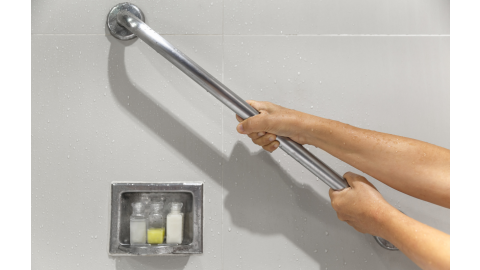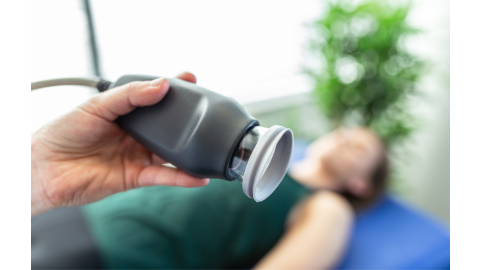Cardiac rehabilitation is a holistic program designed to improve your heart health. This means it includes not only an exercise program, but also nutrition and stress relief education. Stress reduction is an important part of keeping your heart healthy. Learn twenty-five ways to reduce your stress!
What causes stress?
Everyone has different stressors that can trigger a stress response in their body and not everyone reacts to the same stressor in the same way.
Stressors, like a lost job, divorce, chronic illness, or an unexpected bill can cause negative stress. Stressors can also cause positive stress from activities like planning an upcoming wedding, giving a presentation, or getting promoted and starting a new role at work.
Both types of stress lead to the same bodily reaction.
How does stress affect your body?
Stress can cause your heart to beat faster, your breathing to speed up, and your body to sweat and tense. It creates hormonal, cardiovascular, respiratory, and nervous system changes, prompting a “fight-or-flight response”.
While short-term stress that causes “butterflies” is okay, long-term, chronic stress can have a negative impact on your health.
Why Reducing Stress is Important in Cardiac Rehab
More research is needed to determine the exact link between stress and heart disease.
But stress may affect factors that increase your risk of heart disease including:
- High blood pressure
- High cholesterol
- Smoking
- Overeating
- Physical inactivity
- Sleeping problems
- Heavy drinking (drinking too much alcohol)
Stress reduction is an important part of keeping your heart healthy. Follow steps to reduce your stress!
25 Ways to Reduce Your Stress
There are several activities and techniques you can use to reduce your stress. Try a few of these ideas!
- Use positive self-talk. (“I can do this.” “We all make mistakes. I can fix this.” “I can handle this one step at a time.”)
- Go for a walk.
- Focus on your breathing. Breathe slowly and deeply, focusing on breathing in and out.
- Decompress by relaxing with scented candles and a warm face mask.
- Listen to relaxing music.
- Get social. Reach out to a friend for a quick chat, to share a meal, or to enjoy an activity.
- Take a break to pet your dog or play with your kids.
- Meditate. Sit in a quiet place, close your eyes, and repeat a positive mantra, like “I feel calm and at peace.''
- Get a massage or give one to yourself using a massage roller.
- Take some time to relax in nature and watch the sunrise or sunset.
- Do some yoga in a class or at home.
- Disconnect from social media and reconnect with nature by going camping.
- Laugh. Watch a funny tv sitcom or talk to a friend who makes you laugh.
- Get active. Go for a run, do some resistance band strength training, or go for a swim.
- Take a relaxing bath.
- Spend time doing your favorite hobbies (knitting, cooking, horseback riding, etc.).
- Keep a gratitude journal. Write down all of the experiences you’re grateful for in your life.
- Read a book or magazine to take your mind off of things.
- Play a favorite sport like tennis, golf, soccer, or basketball.
- Be creative and make some art, including painting, drawing, and other crafts.
- Enjoy a spa day full of pampering, soothing paraffin wax treatments, and freshly polished nails.
- Work in your garden planting beautiful flowers or nourishing food.
- Create a scrapbook or photo album to reflect on happy memories.
- Do a home improvement project.
- Ask a mental health professional for more ways to cope with your stress
Reducing your stress is a key part of cardiac rehab. Keep your heart healthy by starting to reduce your stress today!
Learn more about cardiac rehabilitation…
References
American Heart Association. (2018). Stress and Heart Health. American Heart Association. Retrieved from https://bit.ly/2w96PoY
Ratini, M. (2019). What is stress? Web MD. Retrieved from https://wb.md/2G4Yo42
Medical Disclaimer: The information provided on this site, including text, graphics, images and other material, are for informational purposes only and are not intended to substitute for professional medical advice, diagnosis or treatment. Always seek the advice of your physician or other healthcare professional with any questions or concerns you may have regarding your condition.








 France
France Australia
Australia






